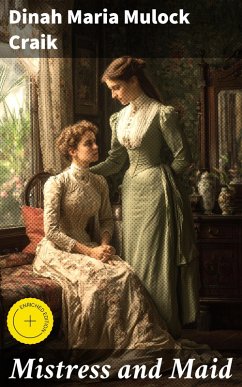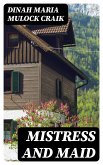In "Mistress and Maid," Dinah Maria Mulock Craik dives into the intricacies of the Victorian social hierarchy, exploring the nuanced relationships between women of differing social standings. The narrative, which intertwines elements of social realism and moral didacticism, illuminates themes of compassion, loyalty, and the quest for agency amid societal constraints. Craik's adept use of dialogue and vivid characterizations creates a rich, immersive world that captures the struggles and triumphs of her characters, making the text a significant study of gender dynamics during the 19th century. Craik, a prominent Victorian novelist and poet, often drew from her own experiences as a woman navigating the literary landscape of her time. Her commitment to addressing women's issues and the societal limitations imposed upon them is evident throughout her oeuvre. Growing up in a middle-class environment and facing the challenges of self-assertion in a male-dominated society may have influenced her narrative choices, underscoring her profound empathy towards women from all walks of life. "Mistress and Maid" is not merely a tale; it is a poignant commentary on the era's social fabric. I highly recommend this work to readers interested in feminist literature, Victorian social studies, or anyone seeking profound insights into the human condition. In this enriched edition, we have carefully created added value for your reading experience: - A succinct Introduction situates the work's timeless appeal and themes. - The Synopsis outlines the central plot, highlighting key developments without spoiling critical twists. - A detailed Historical Context immerses you in the era's events and influences that shaped the writing. - A thorough Analysis dissects symbols, motifs, and character arcs to unearth underlying meanings. - Reflection questions prompt you to engage personally with the work's messages, connecting them to modern life. - Hand-picked Memorable Quotes shine a spotlight on moments of literary brilliance. - Interactive footnotes clarify unusual references, historical allusions, and archaic phrases for an effortless, more informed read.
Dieser Download kann aus rechtlichen Gründen nur mit Rechnungsadresse in A, B, BG, CY, CZ, D, DK, EW, E, FIN, F, GR, H, IRL, I, LT, L, LR, M, NL, PL, P, R, S, SLO, SK ausgeliefert werden.









